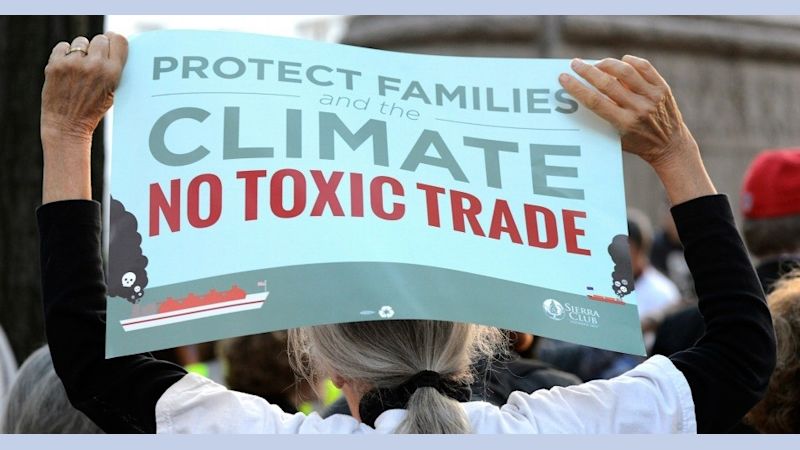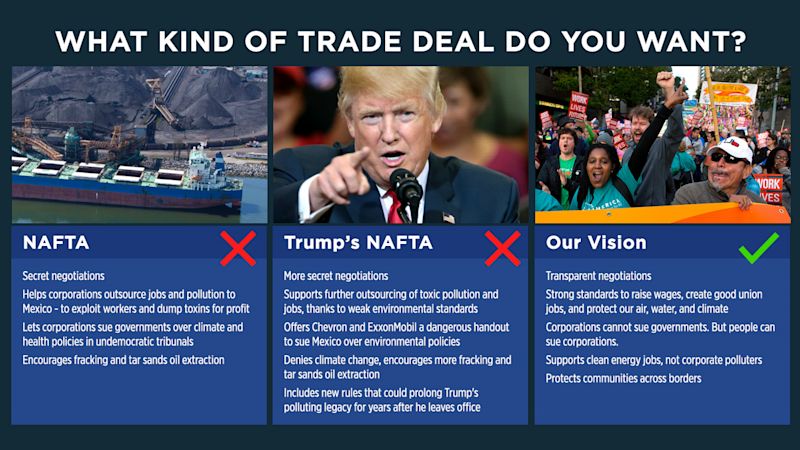Noticias de la campaña
Fair Trade and My Position on Trump's USMCA (NAFTA 2.0)

My opponent, Bill Foster, voted to support Trump’s NAFTA 2.0 along with other democrats and republicans. I would have voted against Trump's NAFTA deal because it will only exacerbate the climate crisis. I would have stood with these environmental groups: 350.org, Earthjustice, Food and Water Action, Friends of the Earth, Greenpeace, League of Conservation Voters, Natural Resources Defense Council, Oil Change International, Sierra Club, and Sunrise Movement.

The Trump administration’s text included a new “rule of origin” that would make it cheaper for oil corporations to export climate-polluting tar sands oil to the U.S. through dangerous oil pipelines like Keystone XL. The text also failed to include a provision that is needed to preserve the U.S.’s autonomy to determine if gas exports to Mexico and Canada are in the public interest. This provision is necessary to fix NAFTA’s automatic gas export guarantee, which has contributed to a five-fold surge in gas exports to Mexico since 2010, fueling increased fracking in the U.S. and an expansion of controversial cross-border gas pipelines.
As the next representative from Illinois’ 11th district I will make sure that we address the climate crisis in every trade deal. In addition to stricter environmental standards, I will also support the inclusion and expansion of human rights, women’s rights and strong, enforceable worker’s rights standards. NAFTA 2.0 makes small strides forward with labor standards. However, while these baby steps need to be recognized, I still have serious questions about how labor standards will be enforced on factory floors. Regardless, NAFTA 2.0 remains damaging to the environment despite these modest gains.
The deep irony here is that in the past, my opponent has used fossil fuel industry talking points and defined climate change as a “global problem," rather than addressing the problems right here at home in the U.S. Specifically, he has singled out other carbon-polluting nations like India and China as a way of dismissing the need for serious climate action by the United States Congress. The best way for the U.S. to influence the climate policies of other nations is through trade agreements like USMCA. Bill Foster cannot talk out of both sides of his mouth by criticizing other nations and then voting for a trade agreement that makes the climate crisis worse.
This trade agreement is far from being a “template” for future trade agreements. It represents the a starting place and there is still much work to be done.
Foster’s vote for NAFTA 2.0 further solidifies that there is only one climate candidate in the race for Illinois’ 11th Congressional District. Her name is Rachel Ventura.
